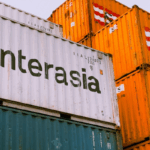The International Institute for Management Development (IMD) argues that competitiveness is a requirement for driving economic growth, as a highly competitive country can generate, attract, and retain investments that foster sustainable economic growth based on productivity, resulting in a constant increase in social well-being. The World Competitiveness Ranking 2023, published by IMD, provides a comparative evaluation of the economic and business competitiveness of 64 countries globally, considering the socio-cultural, economic, and political challenges that companies face in each context.
The ranking of different countries is based on various indicators such as economic performance, government efficiency, infrastructure, education, and innovation, among others, which are considered key factors influencing a country’s competitiveness. Countries with higher scores occupy higher positions in the ranking. In Latin America, Chile is the most competitive country (ranked 44th), followed by Peru (ranked 55th), Mexico (ranked 56th), Colombia (ranked 58th), and Brazil (ranked 60th). Argentina (ranked 63rd) and Venezuela (ranked 64th) are at the bottom positions regionally and globally.
Over the past five years, Chile has been considered the most competitive country in Latin America; however, this does not imply a high degree of competitiveness. From 2019 to 2023, Chile dropped two positions in the global ranking. Its current status is primarily explained by public policies implemented in the financial and fiscal spheres and business legislation. Additionally, efficient resource management by companies and the country’s technological infrastructure play a significant role.
Since 2019, the Latin American landscape has moved away from an optimal situation. In the case of Peru, its competitiveness development has remained stable, fluctuating slightly in terms of position from year to year. Mexico has dropped six places since 2019, possibly due to the ineffectiveness of the government, as well as the inefficiency of companies and inadequate infrastructure, which still need improvement through public policies. Colombia’s competitiveness has also dropped six positions, indicating the need to address infrastructure and business efficiency challenges. Brazil’s situation regarding competitiveness is influenced by political instability, financial issues, and educational infrastructure, with the country dropping one position in the ranking compared to 2019. On the other hand, Argentina has remained among the lowest positions in the ranking since 2019, and its competitiveness is affected by an unstable standard of living, public policies that do not guarantee stability, and inadequate basic, technological, and scientific infrastructure for a competitive environment.
Venezuela has occupied the last position in the ranking for the past five years, facing significant challenges ranging from improving economic performance and infrastructure to governmental and business efficiency. The country presents a scenario that generates a lot of mistrust and economic instability, in addition to being unable to guarantee basic services for industries and households.
The evolution and current competitiveness situation in Latin America demonstrate that the region needs to catch up. Notably, Latin American countries rank below the 35th position in the ranking. Why is that? The situation facing the bloc is far from optimistic, as the context in which the countries find themselves limits their sustainable economic growth and social progress. This is a consequence of different governments’ inadequate implementation of economic policies and social reforms. However, it is not solely a result of the COVID-19 pandemic and the economic and social crisis it has brought, but rather a context that existed before the catastrophe.
While Latin American countries find themselves in an unfavorable position regarding competitiveness, this is dynamic. It can be improved through specific policies and actions to ensure a beneficial space for innovation and business development. The public policy of the countries in the region must focus on improving productivity levels and the well-being of their citizens. The World Competitiveness Index emphatically highlights that Latin American countries must enhance market growth through innovation and promote political stability to address uncertainty. Structural reforms in the education sector and fiscal policy should also be encouraged.
* Lucía F. García Encinas is currently an intern at Fundación Internacional Bases
Source: We Are Innovation











